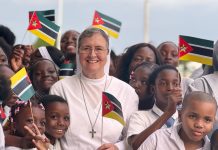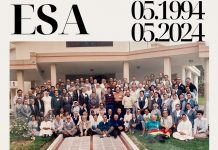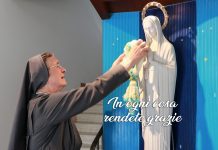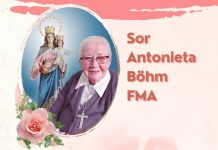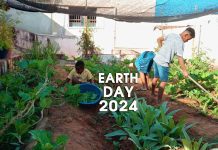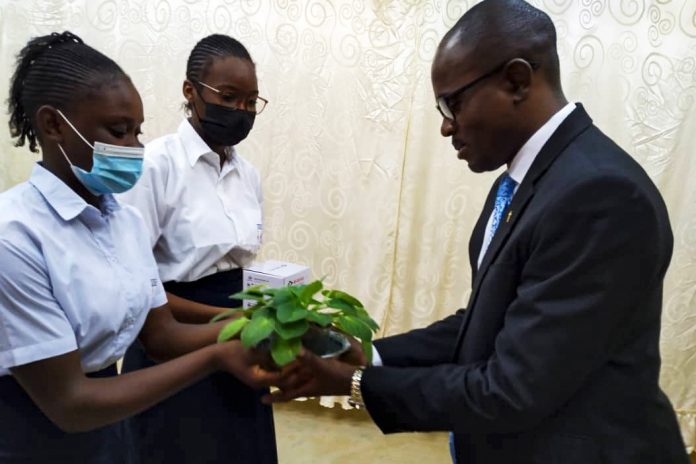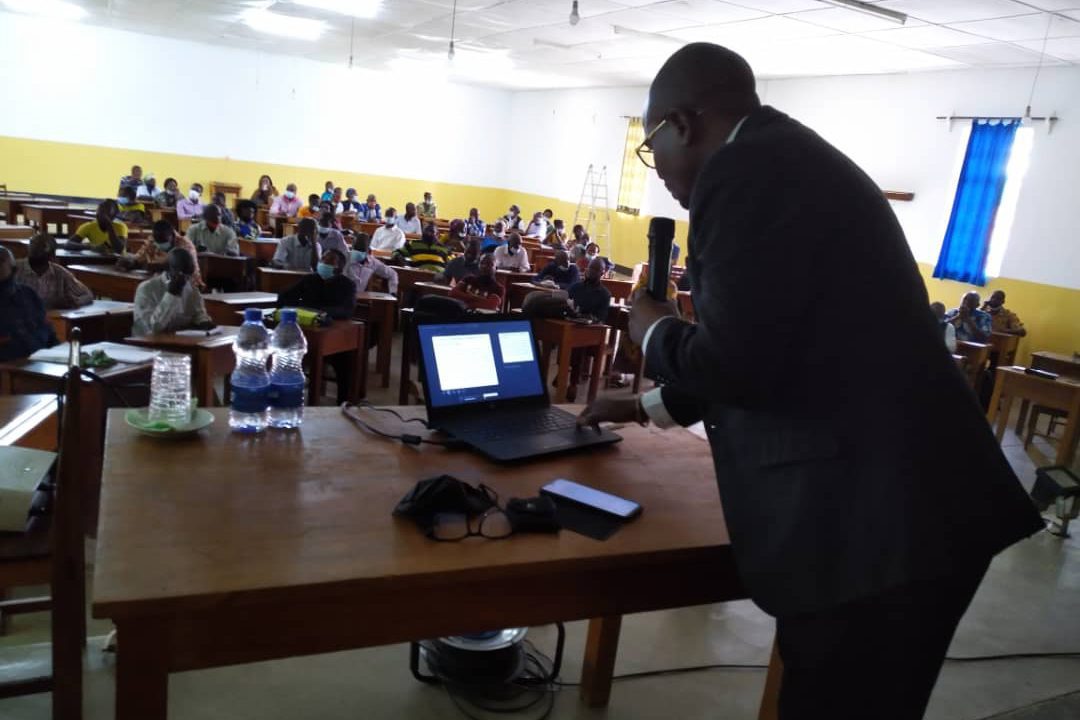Kafubu (Dem Rep. Congo). From 13 to 15 January 2022, the Educating Community of Mary Help of Christians of Kafubu, Lubumbashi, of the Our Lady of Africa Province (AFC) experienced ecological formation days on the theme: “Paths to make ecology possible in a religious community”, held by Fr. Vital Mwenge, Xaverian Father.
The conference was held in two groups. The first day was for the Daughters of Mary Help of Christians and the Novices; the second day, for the collaborators, the young women in formation, and the students.
The aim of the Days was to help develop awareness and commitment towards the situation of the planet, towards a solidarity economy, promoting the reduction of waste and other ecological attitudes. Furthermore, for the FMA and the young women in formation, the aim was also to reflect on the ecological dimension of religious vows in a relational key.
Fr. Vital Mwenge addressed each of the three evangelical counsels from an ecological perspective:
Chastity, understood as regard for one’s own body, as human beings inhabited by nature and inserted in the totality of the cosmos. Reconciling with nature is reconciling with your body. However, this awareness is not enough. The body-nature is a body of relationship with others, with the Other, with the otherness of nature and it is, therefore, necessary to educate it.
Poverty, understood by the speaker as the art of distancing, through which to develop a critical sense regarding the relationship of ownership. This allows you to ‘keep your hands open’, to leave the person free. Religious poverty is also a prophecy in the way of managing wealth, which involves the ability to share and decide together.
Obedience, considered as recognition of the lordship of nature, which involves taking care of it and protecting it. Safeguarding nature is safeguarding the relationship between beings and caring about the fragility of nature. This also means thinking about work in a different manner than dominating the resources of the planet and of others.
The following day, Fr. Vital continued his formation with the FMA and the Novices, including the collaborators: teachers, nurses from the dispensary, workers, young people in formation, and students of the Kwesu Lyceum.
Using instructional materials, the speaker highlighted the main factor of global warming, caused by the emission of greenhouse gases, of which about 90% are made up of carbon dioxide and methane. The burning of fossil fuels such as coal, oil, and natural gas for energy consumption is the main source of these emissions, with additional contributions from agriculture, deforestation, and industrial production. These data have been inserted into the reality of belonging to the Community, taking into consideration some current problems, such as deforestation and coal burning.
In the presentation, Fr. Vital developed some points from the Encyclical Laudato Si’, on care for the common home, in which Pope Francis emphasizes the collaboration of each one in safeguarding creation, “We can all collaborate as instruments of God for the safeguarding of creation, each according to their own culture, experience, initiatives, and abilities” (LS 14).
The ecological formation days were an opportunity for the Kafubu Educating Community to study the themes and undertake a process of ecological conversion together.


